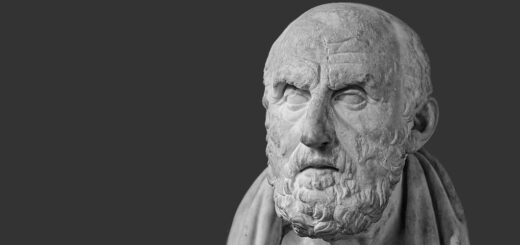Seneca: The Stoic Sage Who Tamed the Chaos of Ancient Rome

Image by Michal Renčo from Pixabay
In the annals of ancient philosophy, few figures shine as brightly as Seneca the Younger. Born in 4 BC in Corduba (modern-day Córdoba, Spain), Seneca rose to become one of the most influential Stoic philosophers of his time. His profound insights into human nature and ethics have left an indelible mark on the world of philosophy. In this blog post, we explore Seneca’s life and his invaluable contributions to philosophy, focusing on three of his most profound quotes.
Stoicism: A Philosophy for Turbulent Times
Seneca lived during a tumultuous period in Roman history. His lifetime spanned the reigns of several emperors, including the notorious Nero. Corruption, political intrigue, and societal decadence were rampant. In this chaotic environment, Seneca’s philosophy of Stoicism provided a moral compass and a path to inner peace.
Luck is what happens when preparation meets opportunity.
This famous quote underscores Seneca’s belief in the power of preparation and self-improvement. In an era marked by unpredictability and shifting political fortunes, Seneca’s emphasis on individual agency and readiness was paramount.
Many Romans, at the mercy of ever-changing political tides, felt helpless and vulnerable. Seneca’s teachings, on the other hand, empowered individuals to prepare themselves mentally and morally for whatever life might throw their way. By cultivating virtues and inner resilience, they could seize opportunities when they arose and weather adversities with grace.
He who is brave is free.
Seneca’s assertion that bravery equates to freedom was revolutionary in a society where conformity often overshadowed personal courage. During his time, individuals who dared to challenge the status quo risked persecution or even death. Seneca’s philosophy encouraged people to be courageous not only in the face of external threats but also in the pursuit of inner virtue.
This idea of inner freedom through bravery resonated deeply with his contemporaries. It inspired them to break free from the shackles of fear and societal pressures, allowing them to live authentic lives guided by their principles. In a world where political and moral compromise was rampant, Seneca’s teachings offered a path to genuine freedom.
True happiness is to enjoy the present, without anxious dependence upon the future.
Seneca’s emphasis on living in the present moment was a counterpoint to the prevailing anxiety of his time. Rome’s elite, constantly striving for wealth and power, often neglected the joys of the present in their relentless pursuit of the future. Seneca’s wisdom reminded them that happiness could only be found by savoring the present, rather than constantly deferring it for tomorrow.
This teaching was especially relevant in a society marked by excess and extravagance. Seneca’s philosophy encouraged people to embrace simplicity and gratitude, fostering contentment in a world driven by insatiable desires.
Seneca’s contributions to philosophy transcend the boundaries of time. His Stoic teachings on self-improvement, bravery, and living in the moment offer guidance and solace in today’s fast-paced world. In an era marked by uncertainty, distractions, and external pressures, Seneca reminds us of the enduring power of philosophy to navigate life’s challenges.
The legacy of Seneca, the Stoic sage, is a testament to the enduring value of wisdom and virtue. His teachings continue to inspire individuals seeking inner peace, moral clarity, and resilience in the face of adversity. In a world that often feels as turbulent as ancient Rome, Seneca’s words remain a source of timeless guidance and insight.
















